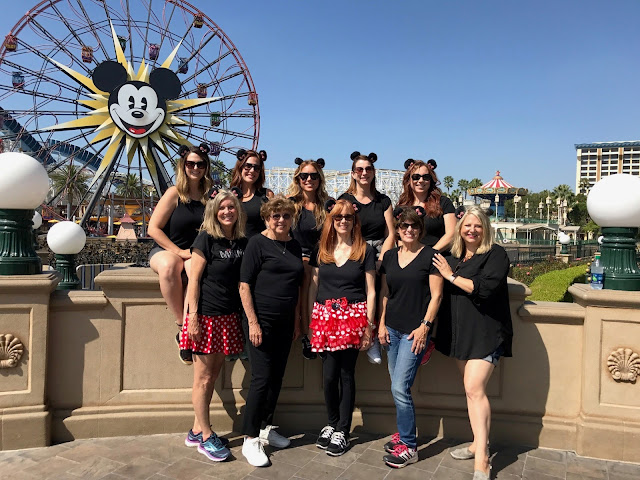My Diabetes Culture
 My diabetes group and I met last night for our monthly chat.
While we were talking one of our members mentioned that he came across a Ted
Talk that dealt with cultures and subcultures being developed within
communities such as the deaf community, homosexual community, and the dwarf
community, etc. I felt I knew where he was going with this and jumped the gun
and shouted, “Like we have a diabetes culture”! He smiled and agreed, not only
did he agree, but he also mentioned wanting to grow our group and bring more
people in to be apart of our culture and the importance of that.
My diabetes group and I met last night for our monthly chat.
While we were talking one of our members mentioned that he came across a Ted
Talk that dealt with cultures and subcultures being developed within
communities such as the deaf community, homosexual community, and the dwarf
community, etc. I felt I knew where he was going with this and jumped the gun
and shouted, “Like we have a diabetes culture”! He smiled and agreed, not only
did he agree, but he also mentioned wanting to grow our group and bring more
people in to be apart of our culture and the importance of that.
When I first was diagnosed with diabetes I felt alone. There
was no one to talk to about what was happening to me, or who could walk me
through things during my transition other than my doctor and honestly, it made
me want to give up and not take on my new identity of being a diabetic. I tried
to learn everything I could about my diabetes, tried to pretend that it wasn’t
there, tried to be just like everyone else when I was out on the town and not
pay attention to my high blood sugars. I don’t know if you caught that, but I
tried to deny who I really was to fit in. If you asked me when I was first
diagnosed if I felt my diabetes defined me I would have told you no. But over
the years, I’m beginning to realize it’s a huge part of my life and my
identity.
More years passed and every time I met a diabetic we would
share with one another our diagnosis stories, our craziest highs and lows, talk
about our equipment and so forth. We would get lost in our own little world
because no one else would understand our daily lives as well as the person we
were talking with at that very moment. It wasn’t until I got plugged into my
diabetes group that I could see a culture of people right in front of me. Yours
and my stories turned into our stories, our language, our jokes, frustrations,
and so on. This was no longer my own identity, but our identity. The loneliness
of this disease seemed like a thing of the past. We created a culture without
even meaning to.
In the Ted Talk the speaker talks about asking families of
these various communities if they wished that these things had never happened
to their children? And one family who had a child with Down Syndrome replied
that on one hand, they wished their child didn’t have to go through life with
difficulty, but on the other hand, they wouldn’t have gotten to know others
with Down Syndrome and share experiences with others like them and because of
that, no, they wouldn’t wish that. It got me thinking, now that I have
confirmed my identity in being a diabetic, and have been welcomed into the
diabetes culture would I hope that one-day there is a cure? And like that
family I have two answers. On the one hand, yes, I would pray for a cure so that
other diabetics and the diabetics to come would not have to worry about the
complications that come with having diabetes. But for myself, no, I don’t wish
for a cure just yet. I was diagnosed with diabetes on the brink of my adulthood
and strongly believe that going through that experience has helped me develop
who I am today and because of that I wouldn’t want a cure for myself
personally.
The main point of Andrew Solomon’s talk was acceptance and
over the years of living with diabetes, that is what I have done with this
disease is accept that I will never be like everyone else. I will always have a
medical device attached to me, always have a juice box and syringes in my
purse, and always have to give myself a dose of insulin whenever I eat a meal.
No, having diabetes is nothing like the issues he talks about in his talk,
really you could say they are like comparing apples and oranges, but while
listening to what he had to say I couldn’t help but relate it to my culture of
being diabetic. And at the end of the day I am proud of my culture and want to
welcome others to come and be apart of it as well, whether they are looking for
understanding, help, or just people to relate to. At the end of the day we all
have some sort of common ground and I am thankful for the disease that has given me the opportunity to get to know new faces.


Well put. Love the site.
ReplyDeleteSuch beautiful words! Indeed, a lot of people with diabetes feel isolated because of their condition and there are cases when they become depressed. I'm glad you were able to find a group of people to support you and share your struggles with. I hope you are able to inspire other people, not just with diabetes, but with other medical conditions that they may be struggling with.
ReplyDeleteRomeo Perales @ PrimaryCareAK.com